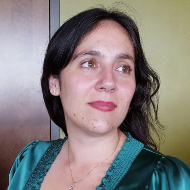We talk a lot about the dismal state of science education in America. Students in our country don’t do well on international science tests, a quarter of American adults think the sun revolves around the earth, and major political figures deny the validity of scientific consensus on a more or less daily basis. We’ve got a major problem in America with science literacy, and when we see students not doing well, we often blame teachers. Teachers are easy to blame; they’re generally too busy teaching to defend themselves. And when we blame them, we tend to imply that teaching is an innate talent. An art, or a form of intuition. This misconception is part of the problem. Teaching is a skill. Like every skill, it involves thought, study, and practice. What’s more, teaching is a skill with lots of observable, measurable components. It’s a skill where different methods can be tested; different outcomes recorded and analyzed. And it’s a skill that I study through the lens of science.
My background is in science education research. This means that I’m a scientist who studies how best to teach science. There are actually a lot of us in this field, working on methods that can make a big difference in the classroom. I made some interesting discoveries about how language can impact science teaching before coming to work at the NCSE, and I’m still very curious about how we “talk science”. The kind of language we use has a huge impact on people’s ability to learn.
When I was teaching biology at Arizona State University, I really had to think about how I was contributing to science literacy in America. Students were failing my classes, and from talking to them I knew they weren’t failing because there was something wrong with them. These were people who had passed much harder tests than are given in introductory biology courses. A lot of them were first generation college students, immigrants, and non-traditional students. People who had fought their way up to get into college. They were not lazy or stupid people. The students I was failing were people I was failing to reach.
I asked them what was going on. Every single student told me the problem was language. The language of science was freaking them out! There were too many words! The words were all so horrible!
This of course broke my heart, because I love complicated words. I adore the Latin and Greek that lie behind biology. I like the way the phrase “endoplasmic reticulum” feels in my mouth. But to help more people understand scientific concepts, I had to accept something important. Not everybody feels that way.
My early research studied what happened when I pulled the science vocabulary out of introductory science classes. I felt like an idiot. Totally deprived of all my precious fancy words, I had to explain what things meant. But the treatment made a huge difference for my students. My students who took the vocabulary-free course almost never failed. Their grades on exams—exams which focused on knowledge application and problem solving—were much higher than those of their peers taught with standard vocabulary. Even more interestingly, my students who took vocabulary-free introductory courses outperformed other students in their upper division science courses by almost a full letter grade.
By questioning my own assumptions and listening to other people, I managed to find a way to help more students succeed in the sciences. Based on the results of my research, I changed the way I teach. Teaching is a skill, and I started considering the way I used language as an important element of that skill. Working as I do now, to help make connections between people, science, and communities, I still need to think about language. And I still need to think about questioning my assumptions.
At the NCSE, we’ve been working for decades to promote science literacy and science education. However, it sometimes seems as if national problems relating to science literacy are only getting worse. There are people who are not being reached by our message. But who are these people, and why aren’t they being reached? How can we change the way we teach and communicate to reach more people? Science education research can help us find these answers using the scientific method, including stringent analysis and peer review. I’ll help you access information from this research that you can use wherever you teach and communicate about science, whether that’s in your classroom or in your community.

